#ivy ling po
Explore tagged Tumblr posts
Text








The Love Eterne '梁山伯與祝英台' 1963, dir. Li Han-Hsiang
#babys first huangmei opera 🥹 and it was sooo good!!!#the love eterne#the butterfly lovers#li han hsiang#ivy ling po#betty loh ti#chinese cinema#hong kong cinema#worldcinemaedit#filmedit#filmgifs#dailyflicks#musicaledit#*#*film#im in lov w my new sharpening regimen#*gif
144 notes
·
View notes
Text











梁山伯與祝英台 // THE LOVE ETERNE (1963) dir. LI HAN-HSIANG
75 notes
·
View notes
Text
instagram
this has me HOWLING
#i NEED that gung gung and po po shirt#ag#american girl#american girl dolls#julie albright#ivy ling#Instagram
13 notes
·
View notes
Photo
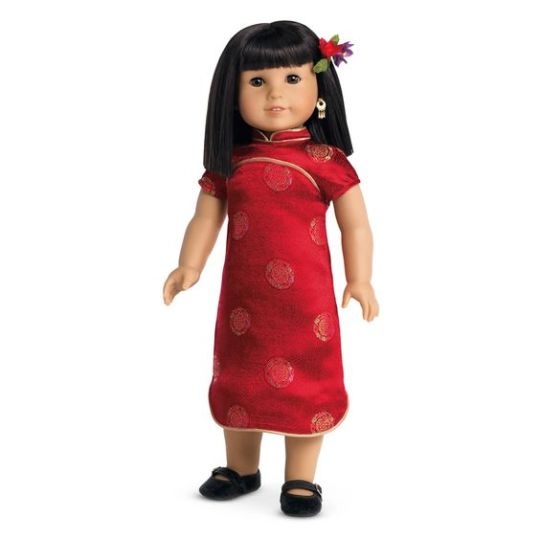
Ivy is the best friend doll with the smallest collection- only three outfits and no play accessories. So yeah, AG really sucks when it comes to Asian rep. Ivy’s New Year outfit makes appearances in both Happy New Year, Julie! and Good Luck, Ivy! The style of dress is called a qipao if you speak Madarin or a cheongsam if you speak Cantonese. The earliest qipao was worn by ruling-class Manchu women during the Qing dynasty as a way of separating themselves from Han commoners.
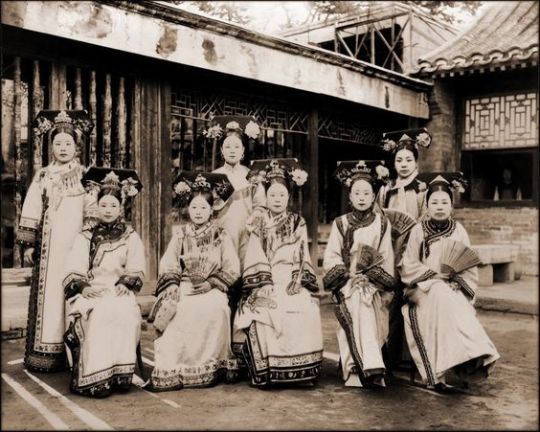
The more modern qipao emerged in the 1920s after Imperial China fell, gender roles changed, and the country began to westernize.
youtube
(1920 Chinese fashion video restored and colorized with AI)
During this time, the qipao became the go-to dress of women of all social classes all across China and the Chinese diaspora.
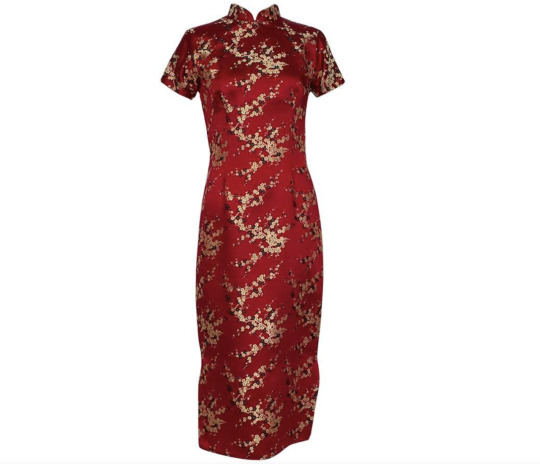
(1stdibs.com)
It was favored by Chinese-American film star Anna May Wong
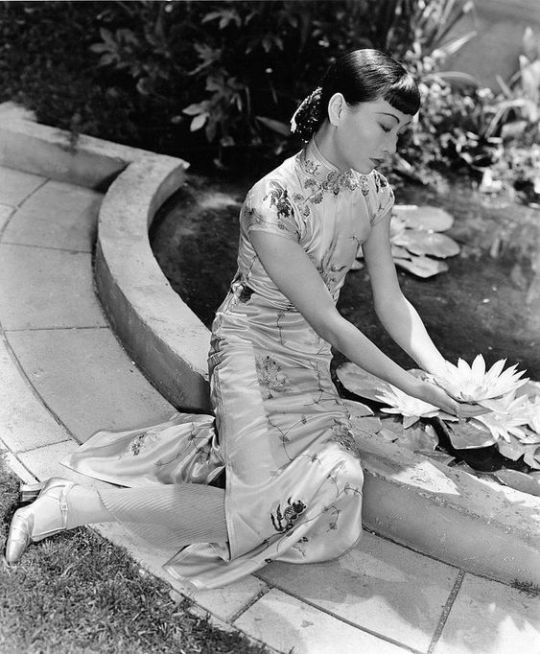
legendary Hong Kong actress (and I’m pretty sure Ivy’s namesake) Ivy Ling Po:
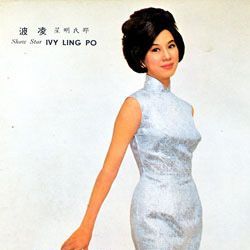
and modern Chinese actress and fashion icon Fan Bingbing:
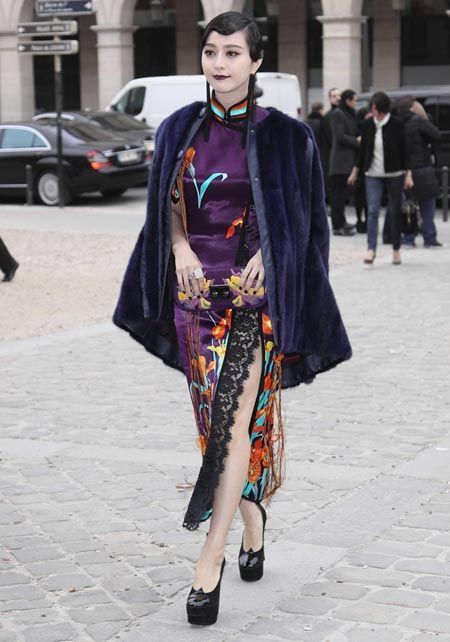
187 notes
·
View notes
Text
movie gif game
Rules: Without naming them, post a gif from ten of your favorite films, then tag ten people to do the same!
posting this here too with some different gifs because reasons.
i couldn't find gifs for my most favorite movie ever tho so i had to substitute ivy ling po's most famous movie instead of that one. interested to see if anyone knows all of them.
tagging @chlorophanes and @rinbylin if you feel like it!










3 notes
·
View notes
Text
movie gif game
Rules: Without naming them, post a gif from ten of your favorite films, then tag ten people to do the same!
tagged by @la-muerta tho i took forever to do it, lol.
i couldn't find gifs for my most favorite movie ever tho so i had to substitute ivy ling po's most famous movie instead of that one. interested to see if anyone knows all of them.
tagging whoever feels like doing it!










3 notes
·
View notes
Text
Lady General Hua Mulan (1964)







花木蘭 Lady General Hua Mulan (1964) directed by Griffin Yueh Feng cinematography by Tadashi Nishimoto
#花木蘭#lady general hua mulan#griffin yueh feng#shaw brothers#hong kong movies#asian movies#stills#ivy ling po
6 notes
·
View notes
Photo




"The sound of one sigh after another, As Mulan weaves at the doorway. No sound of the loom and shuttle, Only that of the girl lamenting..."
Mulan Joins the Army (1939) Lady General Hua Mu-lan (1964) Mulan: Rise of a Warrior (2009) Mulan (2020)
#mulan#hua mulan#ballad of mulan#mulan joins the army#mulan: rise of a warrior#zhao wei#liu yifei#the ballad of mulan#mulan legendary warrior#ivy ling po#chen yunshang#fa mulan#hua mulan lan#mulan rise of a warrior#mulan: legendary warrior#mulan 2020
44 notes
·
View notes
Photo

Hua Mulan (character based on 1964′s live-action film)
#art#painting#drawing#gouache#illustration#Mulan#character#fan art#Shaw Brothers#movies#Ivy Ling Po#Hua Mulan
9 notes
·
View notes
Text
鴛鴦劍俠 The Twin Swords (1965)


Part II of the “Temple of the Red Lotus” trilogy, "The Twin Swords” is a continuation of the the story of the Jin Family against the evil Red Lotus gang. It sort of picks up where the “Temple of the Red Lotus” ends however the escape scene from the first part is changed a bit. Scarlet Maid intervenes and rescues our young couple from the evil gang, but this time she leaves them two fortunes on her red darts warning Gui Wu and Lianzhu to “mind their own business”. The Red Lotus gang dressed as monks, make their prostitutes dress up as peasant women and stage a fake kidnapping of them. Gui Wu and Lianzhu, on their way back to the Jin Castle, witness the fake crime and naturally Lianzhu wants to rescue the women. Gui Wu reminds her of the fortune from the Scarlet Maid, but Lianzhu is insistent and so they fall right into the trap. Lianzhu gets captured by the evil gang, but Gui Wu is able to escape and runs back to the family to get help. When he arrives he is not allowed to enter the home because the men of the family have returned from their business trip and are angry that Gui Wu and Lianzhu left the family to begin with. Gui Wu pleads with them and finally the family agrees on sending Du Chuang (Lo Lieh) to go on a reconnaissance mission to assess how difficult it will be to rescue Lianzhu. I don’t want to give away too much of the plot so eventually, the whole family winds up going to The Red Lotus Temple to rescue Lianzhu. It’s a great movie with more action and less family drama than the first one. It’s also interesting to note that Chang Cheh wrote the lyrics to the songs.I love this trilogy and Wang Yu is amazing.
#Wang Yu#Jimmy Wang Yu#Jimmy Wong Yu#chinese movies#chinese actor#wu xia#wu xia movies#wuxia movie#swordplay#hong kong movies#Shaw Brothers#martial arts actor#Martial Arts Movies#鴛鴦劍俠#The Twin Swords#Ivy Ling Po#lo lieh#Tien Feng#Chin Ping#火燒紅蓮寺之鴛鴦劍俠#fung bo-bo#王羽 movies#王羽#秦萍#凌波#馮寶寶#羅烈
1 note
·
View note
Photo

22 notes
·
View notes
Text
girlbosses, male wives, and other lesbian genders
a post about jing wei qing shang. but also mostly about another unrelated movie. spoiler-free.
for a lot of people, mulan 1998 is their definitive “ohhh i’m a chinese woman dressing as a man for contrived reasons and i get absolutely nooo erotic pleasure from this” movie.
however, because i am very special and unique, for me it’s the love eterne 1963. it’s the shaw brothers adaptation of butterfly lovers, the classic chinese folktale. here’s how i’d summarize the movie:
zhu yingtai, an aspiring scholar, convinces her parents to let her dress as a man to attend school. on the way there, she meets liang shanbo, another prospective student, and they become sworn brothers. they study together for three years, growing closer, until zhu yingtai returns home. liang shangbo accompanies her for the eighteen-li journey home while she hints she’s a woman, but he remains oblivious. by the time he learns her gender, her parents have engaged her to another man. he dies of grief, and while she mourns at his grave, it splits open, and she buries herself inside with him. two scraps of her torn outfit turn into butterflies and fly away.
it’s worth noting here that like. this movie is made in the huangmei opera style. so both zhu yingtai and liang shanbo are played by women (betty loh ti and ivy ling po respectively). because of this, basically every level of the film is preoccupied with gender: if we take zhu yingtai’s male performance as credible (as the characters in the movie do) the leads bond through male homoeroticism; the text is ultimately about a heterosexual romance; it is acted out by two women, in a performance that is difficult to mistake as heterosexual or even feminine; and the dialogue of the movie can’t help but remark on this.
basically it asks: what if lesbians could be gay both ways? wouldn’t that be based?
like opera was traditionally made by single gender casts, so roles tended to be genderless, in that the gender of the actor doesn’t determine the gender of the role they play. roles are instead typed into four categories: dan (fem), sheng (masc), chou (clown), and jing (painted face). it’s a sick gender quadinary. each of these roles has further subtypes that are represented through stylized patterns of singing, makeup, costuming, movement etc.
so in butterfly lovers, betty loh ti plays a dan, and ivy ling po plays a sheng. but because of the textual cross-gender play, you end up with a woman playing a woman playing a man who falls in love with a woman playing a man.
i’m going to make a brief digression here into talking about like.. acting theory. in the european tradition, you see it evolving out of early concerns (from stanislavski, brecht) about the fourth wall, and its permeability or lack thereof. in chinese opera tradition, the fourth wall didn’t ever really exist. and mei lanfang, the legendary fanchuan performer, claimed that his success wasn’t just due to his appearance, but rather, his mastery of some nonliteral feminine subjectivity.
If I kept my male feelings, even just a trace, it will betray my true self; then how can I compete for the audience’s affection for feminine beauty and guile?
i’m not going to argue that there’s like, an essence to being a woman because i’m not a fucking idiot. but there’s something to be said for the idea that the gendered interplay between the audience’s perception of the actor, the actor’s perception of themself, and the character they play is a massive part of the appeal of fanchuan performance.
this is echoed by david hwang’s m. butterfly, in which gallimard memorably says, “i’m a man who loved a woman created by a man. everything else—simply falls short.” btw sorry for having the type of brain disease where i constantly reference chinese crossdressing related media. you already know why i have it.
anyway. parallel to that (but far less morally detestably), jin jiang argues “young male impersonators in yue opera embody women’s ideal men—elegant, graceful, capable, caring, gentle, and loyal.” so, trivially, 1) the eroticism embodied by fanchuan performers is distinctly different from their “straight” counterparts, and perhaps less trivially 2) it’s way better.
back to the love eterne for a bit. one of the many reasons it’s lodged itself into my psyche is because there’s something more interesting at play than just all that. normally in opera, to compensate for any perceived residual femininity in the sheng, the dan camps it up even further. so this is how zhu yingtai first appears, this bratty femme pastiche of womanhood. yet within a couple minutes she’s dressed as a man, which she’ll stay as for the bulk of the movie. they do however make compromises with the makeup--more gently lifted eyebrows than the steep angles of the sheng opera beat, and an improbably masculine smoky eye.
that’s right. they performed girlbossification on her.
i don’t want to suggest that she’s straightforwardly feminine. i could write an entire other thing on her relationship to masculinity. instead i want to highlight the erotic interplay not just between the “girl” and the “boss” but also between her and her counterpart: the male wife.
liang shanbo is ostensibly straightforwardly male, but his relationship with zhu yingtai isn’t gay in the ahaha what if i was into my bro way-- it’s a what if i was into my bro and i was his wife way.
that’s right. they performed force fem on a cis woman-man. like when zhu yingtai tells him he can’t watch over her as she recovers from an illness because “boys and girls can’t sleep together,” liang shanbo asks “are you implying that I’m a girl?”
there’s a lot of shit like this that builds up over the course of the movie. it all culminates in that final 18 mile journey. along the way, zhu yingtai compares them to a pair of mandarin ducks, one male & one female. liang shanbo sputters “i am a man inside out-- you shouldn’t--” before graciously conceding, “you may compare me to a woman.”
this is like. a simple punchline. but it’s incredible. it’s true! liang shanbo isn’t a man inside out in that he’s a man and only a man, but rather that he’s a man seen inside first, built for desiring, by a woman & for a woman. as a perpetual object, he becomes a more believable woman than zhu yingtai. and at least in his view, it seems more likely that he could be a woman than her. but beyond that, his permissive tone reads as a kind of wanting in itself--recast, if she wants, “for you, i’ll be a woman.”
obviously this is a classic lesbian mood. who among us has not seen “no gender only lesbian” posts. and speaking of classic lesbians, you might ask. did you just tiresomely reinvent butches and femmes but with a more annoying name? yes. no. okay. well.
first, like butch/femme dynamics have both historical specificity and a classed character such that it’s not rlly that appropriate to impose them on the love eterne. and i guess more importantly, i wanna talk about stuff that isn’t real.
we fight all day about people who confuse performance with performativity, (i use we lightly here. for instance, i go outside every day so i don’t care about discourse) but what if we actually wanted to talk about the former for once? something specifically, whether we choose or are forced into it, that we pretend to be?
anyway. what the hell does all that have to do with jing wei qing shang. i’m going to start by first making the argument that there’s no such thing as a naturally occurring girlboss. i think, honestly, she’s a product of capitalism (“boss” should be the tipoff here) but because both of these stories are set in ambiguously historical china, i’m going to say, instead that she’s a product of uhhh primitive accumulation.
semantics so that i can be canon compliant with marxism aside, if girlbosses are made not born, can you choose to be a girlboss? sheryl sandberg says yes. i don’t disagree, i guess, but i will say: stop glamorizing it! humans only become girlbosses when they’re greatly distressed.
you become a girlboss when you have no other choice not to be one. when your wants are too great to be a woman, when the things you want are not things that women should want-- whether that’s something that really no one should want, like being a ceo, or whether that’s just something like loving a woman (or, as it is quite often, both) -- you have to become something else.
another important part of being a girlboss is that other people are not. your excesses mean that not only do you lose something in the process, but your bosshood comes at the expense of others. the girlboss necessitates a girlworker, or so to speak.
now we’re getting to jwqs. i’m assuming that you haven’t read jwqs, because most people haven’t. that was me until like four days ago. in broad strokes, the novel is about a woman, qiyan agula, who was raised as a prince, and her quest for revenge against the kingdom who slaughtered her people. of course, this involves marrying one of the princesses of that kingdom. it’s all very exciting (lesbian).
what’s striking about jwqs is that both of them seem to fit the girlboss paradigm, in vaguely similar ways. qi yan (agula’s assumed name) seems to follow the lineage of zhu yingtai, who pretends to be a man to achieve her goals. she’s forced to give up much in the process, and also sacrifices a, uh, lot of innocent people. similarly, nangong jingnu, the princess, is inherently a girlboss because royalty sucks. but also, qi yan girlbossifies her over the course of their relationship.
but i wouldn’t say jwqs is girlboss4girlboss. there’s something a little more complicated happening. qi yan isn’t zhu yingtai in that she’s a dan pretending to be a sheng. it seems more like that she was a sheng all along. it’s something that the women of the novel return to often: qi yan seems to be better than a man.
for instance, nangong sunu, jingnu’s older sister, reflects on this.
Nangong Sunu had seen many foolishly loving women who sacrificed everything for the sake of their husbands, but there were rarely any men who would do the same for them.
(...)
Thinking it through, Nangong Sunu felt that Qi Yan was truly becoming more interesting. She intended to observe discreetly for a while, to verify if such a man truly existed in this world. (ch 221)
and i forgot to write down the citation for this, but nangong jingnu also seems to argue that not only is qi yan prettier than a man, but she also seems to be prettier than a woman. (it’s the bit where she’s watching qi yan sleep. help me out here.)
moreover, the way qi yan relates to nangong jingnu is suggestive. jingnu brings out the elements of wanting to be a woman in her. it’s jingnu’s body that makes her wonder what she would look like if she was more feminine. it’s jingnu’s happiness that she resents, wishing that her people could have that as well. it’s her desire for jingnu that makes her a woman.
(another important distinction i suppose--while one person can’t be both a butch and a femme, because the girlboss and the male wife are things we pretend to be until we embody them / them us -- there’s greater slippage between the two.)
anyway, the girlboss/male wife dynamic is reversed wrt who’s actually dressing as a different gender. that suggests an inversion in the implications we see from the love eterne, if we are to take the love eterne as the paradigmatic girlboss text. which i do, for no reason in particular.
so then, is qi yan pretending to be a man? under the opera framework, we’re forced to say no. she’s not pretending to be a man any more so than liang shanbo (as acted by ivy ling po) was. but that, of course, feels incorrect, just looking at the text. is she, then, pretending to be a sheng? i’d strongly say no. the things that others see in her, they authentically see; and she does authentically feel the same things as liang shanbo wrt femininity.
so it has to be the opera framework that jwqs is subverting then. if qi yan kept some trace of her once-womanhood, if qi yan reveals her true self, and yet she still can compete for the audience’s affection-- jwqs’s inversion of the opera framework seems to argue instead that it’s that true self that allows you to compete. it’s being masc that lets you be a desirable woman; it’s being feminine that lets you be a desirable man.
there’s an increased gender ambivalence to jwqs, which make sense, i guess, seeing as it’s not meant to be a het story the way that the love eterne was. for instance, nangong jingnu crossdresses to go out in public, and qi yan remarks that jingnu’s disguise fooled her on their first meeting. when qi yan and jingnu go out in public, both disguised as men, they’re repeatedly perceived as a gay male couple. there’s freedom in that: they could be gay women only privately, they could be straight officially, but they could be anonymously gay publicly.
so it’s through the gay male pretense that they can be gay women; it’s through the qi yan pretense that agula can love women; it’s the qi yan caring husband persona that coaxes jingnu in caring for qi yan in return-- jwqs, more precisely, argues that you can’t be a woman if you’re going to love them, and even less so if you’re going to be loved by one.
this is perhaps well-trodden ground for anyone who has read wittig & certainly many people who haven’t. but it’s the layer of pretense that for me complicates these two narratives.
i think it’s a relatable feeling: wanting something anticipating getting something, or wanting something for yourself anticipating knowing that you already had it. that is, desire in itself being constitutive of that reality.
or less abstractly, knowing that you’d want to be a lesbian if you could, knowing that you’d want not to be a woman if you could-- anticipating any realization of either.
the dramatic excesses & wants of the girlboss, i think, are a decent literary stand in for being a lesbian.
i wanna note here that this is rlly just based on my experience being a transmisogyny exempt nonbinary diaspora lesbian lol. it’s fun & cathartic to overread this history & place myself in the accidental implications.
i don’t think most of the things i say are literally true. and i don’t want to overstep & say any of this can be generalized. please lmk if something here doesn’t read right! ok kisses bye
187 notes
·
View notes
Text













梁山伯與祝英台 // THE LOVE ETERNE (1963) dir. LI HAN-HSIANG
21 notes
·
View notes
Photo

Ivy Ling Po as Mulan, in a musical production from 1964.
74 notes
·
View notes
Link
***Now Availableness in HD!*** As I suspected, the error Uploading prevented HD Play-back and Caused buffering/black was on YouTube's end. It Semi-modal be Resolving now. Spasibo you for Your patience! In this Sevennight color & chat, we START Colouring in Ivy and the Buttetrfly Colouring Booke by Basford, AND I use play-ol' Crayola s. Did Their do a Goods job, or was it an epic fail? Wrist-watch to Find out! Ery1 had a Phenomenally weekend. ~~~Products Used in Video~~~ Ivy & the Buttetrfly by Basford - Crayola Coloreds ling 100 - Unavailability on (WHAAAAAAT?!?) 64 - M&R - M&R Blades - Mona LiSA Paintworks - ~~~About Simple Art for Adultss~~~ My name is Erin, and I loooove adult Colouring! Joining me as I Explore new Bookes, mediums, tips and Trick for Relieving Stressfulness and Self-anxious Colouring. I'm not a Professionalists artist, so we'll learn new Trick together, and I'll Everything I know you as I go. Feel to me at [email protected]. Addess Erin Jarboe Simple Art for Adultss PO Box 708 Tell City, IN 47586 ~~~Links~~~ Wishingness List: FaceBooke Group: www.faceBooke.com/groups/simpleartforadults Instagram: www.instagram.com/simpleartforadults Twitter: @ErinatSimpleArt Email Addess: [email protected] Website: www.simpleartforadults.com Pinterest: www.pinterest.com/simpleartforadults Home Addess: Pleased this via email Tags: Adults Colouring, adult Colouring Bookes, color and chat, Basford, Ivy, Colouring tutorial, how to color glass, Crayola tutorial, Crayola challenge, Colouring for adults, Crayola s, Crayola s, Crayola s
0 notes
Photo

Jacky Heung Biography, Age, Height, Weight, Family, Wiki Jacky Heung Biography, Height, Weight, Age, Net Worth, Measurements, Dating, Affairs, Career, Marriage, Child, Favorite Things, Profile, Wiki and Some Interesting Facts that you Don’t know! Jacky Heung is a famous Chinese Actor. He was born on 20 July, 1984 and raised up in Hong Kong. Jacky Heung Father & Mother named Not Known. Also Read: Jackson Wang, Jack Ma and Ivy Ling Po Biography. Read Full article: https://celebsjourney.com/jacky-heung-height-age-bio/
0 notes